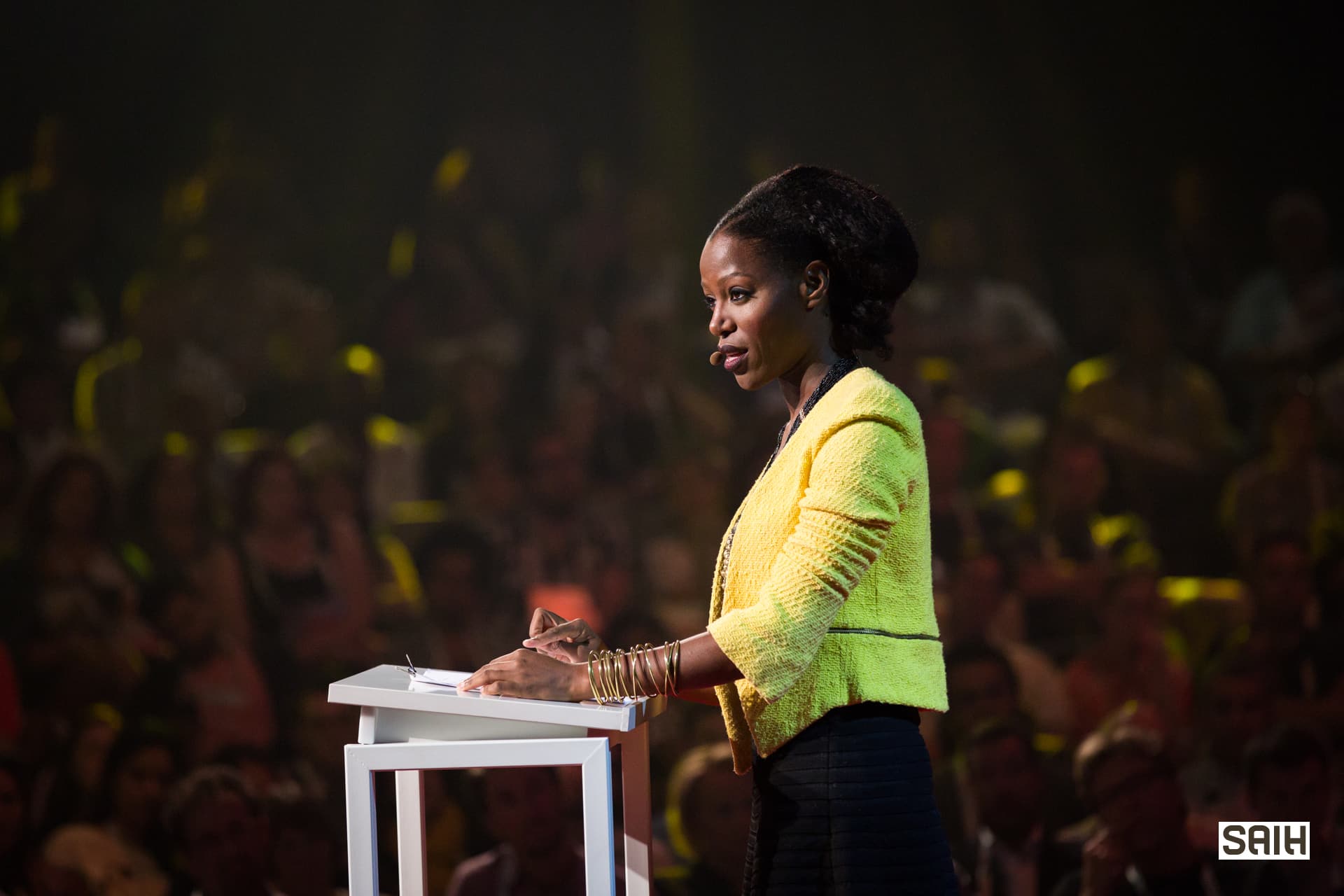Passports and nations
The writer Taiye Selasi doesn’t seem to realize there is a difference between identity as a subjective, biographical problem and identity as a legal and political reality.

Taiye Selasi speaking at TEDGlobal 2014.
The videos of the TED Global 2014 lecture series are not out yet. But if the follow-up blogposts are anything to go by, we can anticipate what Taiye Selasi will tell us in her presentation.
As far as I can tell from Thu-Huong Ha’s quick summary of her talk, Selasi sang the same song she’s been singing for the past few years: “Our passports don’t define us.”
She claims that countries are ephemeral things. Nations can “be born, die, expand and contract.” For that reason, they ought not to define who we are. “History is real,” she insists, “cultures are real, but countries are invented.”
My guess is that Selasi has read books such as Benedict Anderson’s Imagined Communities. Perhaps this is why she speaks of nations as imaginary or invented things. She is right. Nations are not “naturally occurring things.” They are invented. But, then, as Anderson himself would agree, countries are no less “real” just because they are invented.
Selasi concluded her TED talk with the question: “How can I come from a nation? How can a human being come from a concept?” Does she really think that nations are merely concepts?
Nations are invented. But they are also legal, political, and historical entities. They are not things we can wish away like a bad dream. Our nation, our passports do define our lives, our access to resources, and our ability to circulate in the global landscape. To the powers that be, the powers that decide on the distribution of the resources on which our lives depend, we are never simply humans. We are, first and foremost, passport-holders.
Don’t get me wrong. I’m all for critiquing the nation as a form of legal and political identity—especially in the ways it fosters global forms of inequality. But a solid critique of the nation demands that we understand its significance, its power, its history, what is useful about it but also what is dangerous about it. Wishing away the nation as ephemeral and dispensable is itself a dangerous position to take for the simple reason that it completely misunderstands what nations are and why, despite their glaring shortcomings, they continue to exist and define individual life and global relations.
At some point in the talk, Selasi quips: “You can take away my passport, but you can’t take away my experience”—a variation on the “our-passports-don’t-define-us” statement. She also points that what matters is not your country but where “shopkeepers know your face” or what locality “shapes your weekly emotional experience.” Let us be frank here and admit that there is something disturbingly hollow about these kinds of statements. It sounds like some new age political mysticism. Let’s just throw all our passports into the bonfire and dance about in our naked humanity.
But here is where the problem lies.
Selasi hates the “Where are you from” question. It complains that it fails to acknowledge that her identity is multiple. After all, she “was born in the UK and grew up in the US, with an English-born mother raised in Nigeria and an Australian-born father raised in Ghana who has been living in Saudi Arabia for the past thirty years.”
But these are just biographical details. The mere fact that Selasi has a mixed heritage, grew up in different countries, and now has apartments in three different continents proves nothing, least of all that passports—as a legal document—don’t define us. She is confusing biographical quirks for legal status. She doesn’t seem to realize that there is a difference between identity as a subjective, biographical problem and identity as a legal and political reality—two very different issues with different genealogies and, therefore, requiring different kinds of critiques. One does not cancel out the other.



















